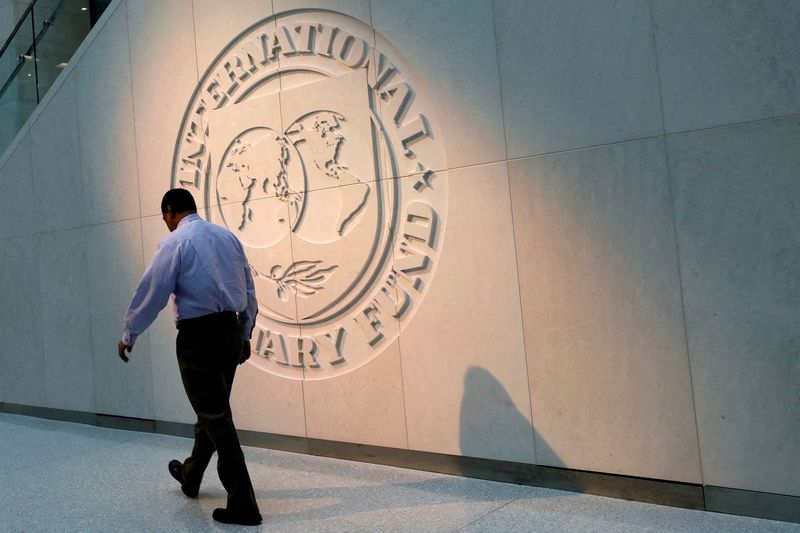By Andrea Shalal
WASHINGTON (Reuters) - Public debt is higher and growing faster than projected before the COVID-19 pandemic, driven mainly by the United States and China, the world's two largest economies, the International Monetary Fund's top fiscal expert said on Wednesday.
Sixty percent of countries are projected to see their public debt to gross domestic product (GDP) ratios decline through 2028 after COVID-related surges, but a significant number of large economies, including Brazil, China and the United States, are seeing rapid growth in their debt-to-GDP ratios.
Vitor Gaspar, director of the IMF's Fiscal Affairs Department, said global public debt soared to almost 100% of GDP in 2020 before posting its steepest drop in 70 years by 2022, although it remained about 8 percentage points above the pre-pandemic level.
Rather than normalizing, the ratio was expected to start rising again this year, hitting 99.6% of GDP in 2028, the last year of the IMF's forecast horizon, he said.
"There are a significant number of large advanced economies, large emerging market economies, where the public debt-to-GDP ratio is projected to grow fast and this list of countries includes Brazil, China, Japan, South Africa, Turkey, United States, and United Kingdom," Gaspar told Reuters. "And the dominant influence comes from the two largest economies."
By contrast, in low-income developing countries, the debt ratio increase during the pandemic was very moderate, and it is now expected to drop to levels forecast before the pandemic in coming years, he said. Tighter budgetary constraints and rising food insecurity had stalled poverty reduction and hampered further progress toward the United Nations' Sustainable Development Goals, the IMF said in its Fiscal Monitor report.
AVOIDING THE 'DOOM LOOP'
Going forward, all countries should closely align their fiscal and monetary policies to combat inflation and build buffers that could be used in the event of crisis, Gaspar said, noting that countries without sufficient buffers suffered longer and deeper recessions in the event of a crisis.
The IMF's report warned that risks were high, and reducing debt vulnerabilities should be an "overriding priority," especially in low-income developing countries where 39 countries were already in or near debt distress.
It said recent banking problems in the United States and Switzerland had heightened risks of an expanding financial crisis, which would put even more pressure on public sector balance sheets if governments were called in to help.
To guard against further and worsening problems, regulators should consider strengthening crisis management frameworks and their regimes for dealing with troubled institutions.

"Among the worst possible crises, are crises where you have a financial crisis simultaneously with a sovereign debt crisis, and that is something labeled as the doom loop," Gaspar said. "Doom loops must be avoided."
As long as financial risks were contained, the fight against inflation was the biggest priority, he said, adding that tighter fiscal policy could also curb demand, reducing the need for more aggressive interest rate increases.